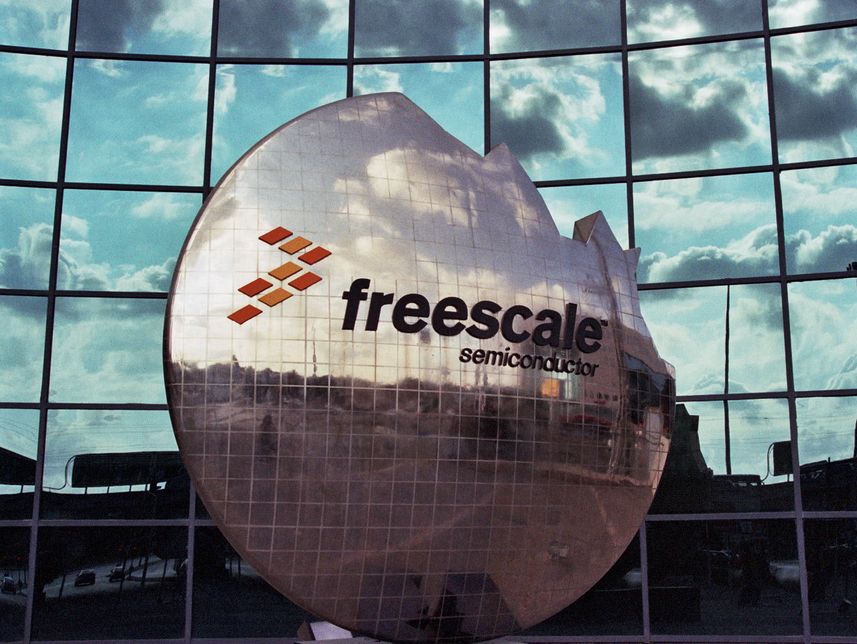Freescale Semiconductor offers embedded processing solutions by combining embedded CPUs, complementing semiconductor devices, and software. Its operations are structured around five main product categories: RF, Automotive MCUs, Analog and Sensors, Digital Networking, and Microcontrollers.
About The Company
Freescale Semiconductor was an American company in the business of semiconductor manufacturing. It was established as a result of Motorola‘s 2004 sale of its Semiconductor Products Sector. Freescale concentrated on their integrated circuit devices’ automotive, embedded, and communications areas. In 2006, a private investment group purchased it, and in 2015, it merged with NXP Semiconductors. Automobile security, hybrid and all-electric cars, next-generation wireless infra, smart electricity planning, portable medical equipment, consumer appliances, and smart mobile devices are some of the company’s primary applications and end-markets. The headquarters of Freescale Semiconductor is in Austin, Texas, and it was established on November 9th, 2006.

History
Out of the US$27 billion in sales for the entire Motorola company as of 2003, the Motorola Semiconductor Products Sector generated semiconductor sales of US$5.0 billion. On October 6, 2003, Motorola made the announcement that their semiconductor section would be sold off to form Freescale. In 2004, Freescale concluded its IPO at the cost of US$13. It predicted that the shares would cost between US$17.50 and US$19.50, but once the market became less favourable to tech firms, it reduced its pricing to US$13. In 2006, Freescale consented to be acquired by a group led by the Blackstone Group for $17.6 billion. In November 2006, a special shareholder meeting approved the purchase offer. One of the top ten buyouts in history, the transaction concluded in December 2006, is said to be the biggest private acquisition of a technology business. In 2011, the company’s IPO was successfully concluded. The ticker symbol for Freescale on the NYE was FSL. The firm was under investigation for improper activity in connection with this IPO, and at the point of the IPO, it had $7.6 billion in existing debt on its books.
Marvell Semiconductor filed a lawsuit against Freescale for violating seven patents. In 2015, a settlement was reached. Freescale was ordered to pay an unspecified amount as part of a settlement after losing a claim for patent infringement brought by Tessera Corporation.
Products
The primary business division of Freescale, MSG (Micro-controller Solutions Group), is currently the top provider of semiconductors to the automotive industry. It is the main provider of engine system microcontrollers globally. Electronics are used in modern cars to operate the engine for maximum performance and to cut pollution. Freescale’s microcontrollers and analogue power management circuits are used in automobile airbags and anti-lock brake systems. Other integrated sensor products made by Freescale include accelerometer sensors and pressure sensors. Freescale’s NMG (Networking and Multimedia Group) and RASG are two additional significant semiconductor businesses in addition to the MSG business group (RF, Analog and Sensors Group). Until Apple Computer switched to Intel processors in 2006, Freescale had also been a PowerPC microprocessors (ICs) supplier for its PowerBook and Mac mini products. In order to create and advance the use of Power Architecture, they became a founding member of Power.org in 2006. Additionally, Freescale offers a line of Digital Signal Processors (DSP) based on StarCore Technology. Systems for voice-over IP, video infrastructure, and broadband wireless all require DSPs from Freescale.
CEO – Greg Lowe
The CEO of Freescale Semiconductor is Greg Lowe. Lowe formerly worked at Texas Instruments as executive vice president and supervisor of the Analog division before joining Freescale. Lowe received his degree from Stanford University’s Executive Program. In 1984, Mr. Lowe graduated with a B.S. in Electrical Engineering from Terre Haute, Indiana’s Rose-Hulman Institute of Technology.

I am a law graduate from NLU Lucknow. I have a flair for creative writing and hence in my free time work as a freelance content writer.